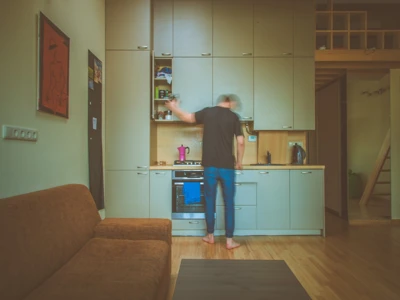In January, Karen Buck, Labour MP for Westminster North, introduced a Bill into parliament that seeks to modernise the current system governing a rented property’s fitness for habitation, which has remained unchanged since the 1950s. Where a landlord fails to let and maintain a property that is considered fit for human habitation, the Bill would give tenants a right to take action in the courts, without requiring them to first approach their local authority.
Currently, if a private tenant is unhappy about the standard of their accommodation, they have to go to the council and ask them to take enforcement action under the Housing Health and Safety Rating System (HHSRS). However, the resolution of their complaint depends to a large extent on where they live, because there is a huge variation across the UK in how Environmental Health Officers inspect properties, issue notices and actually enforce them. The reality is that action is only taken against a very small proportion of landlords of hazardous properties, mainly because most councils simply do not have sufficient resources to make thorough checks and pursue landlords that are providing sub-standard accommodation.
So Karen Buck has brought her ‘Homes (Fitness for Human Habitation and Liability for Housing Standards) Bill 2017-19’ to try to make it easier and quicker for tenants to resolve issues around the condition of their rented property. The Bill proposes giving all tenants the power to take action against their landlord at the same standard as local authorities can, i.e. they can require their landlord to put right any problems or hazards that make their home unfit for habitation and pursue them for compensation if they don’t.
The Bill, which also has the backing of a number of high-profile organisations, including Shelter, the Residential Landlords Association and the Chartered Institute of Environmental Health Officers, states:
• That all landlords (both social and private sector) must ensure that their property is fit for human habitation at the beginning of the tenancy and throughout; and
• Where a landlord fails to do so, the tenant has the right to take legal action in the courts for breach of contract on the grounds that the property is unfit for human habitation.
Essentially, landlords would be required to do nothing more onerous than provide a decent standard of living for tenants, which most already do. This legislation would simply make it harder for the unscrupulous ones to get away with their bad practices. Assuming this Bill does become law, hopefully those tenants who are currently hesitant about escalating issues to the authorities would be reassured that they have the legal right to communicate directly with their landlord and insist that dangerous conditions are made safe.
One of the top things that I find landlords don’t always tackle properly is damp, condensation and mould, but these are things that you can be fined for, which can mean it will also be difficult to evict your tenant if needed. To ensure this doesn’t happen to you, always get an expert in to diagnose the causes – they may be minor and just be a ventilation issue or a major issue in that your damp course has failed and needs replacing.
Either way, any issues with this, heating, leaks and even cracked windows is worth fixing as this can also down value your property’s value and if not treated properly cause further costly damage.
Important information
There is no guarantee that it will be possible to arrange continuous letting of the property, nor that rental income will be sufficient to meet the cost of the mortgage.
Your property may be repossessed if you do not keep up repayments on your mortgage.
There may be a fee for mortgage advice. The actual amount you pay will depend upon your circumstances. The fee is up to 1% but a typical fee is 0.3% of the amount borrowed.

